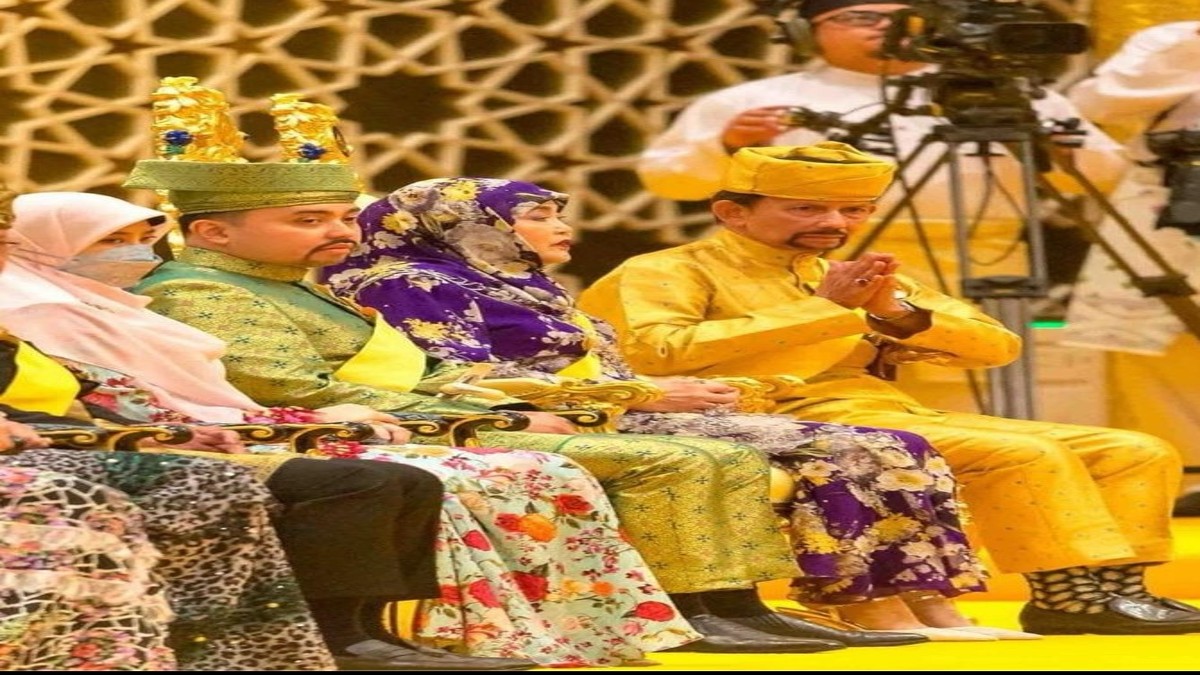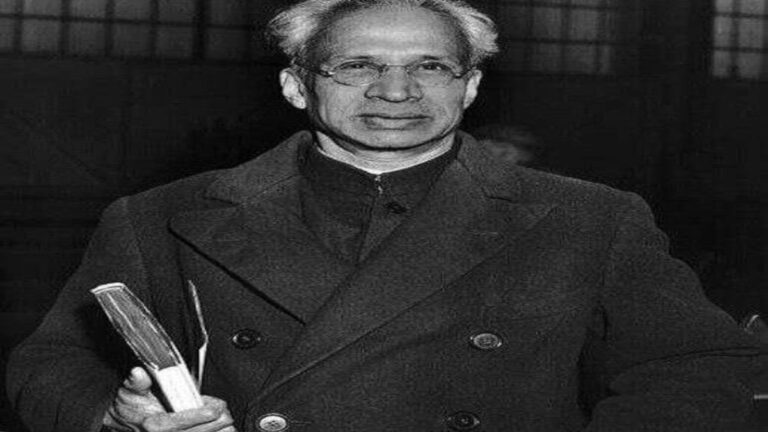The Sultan of Brunei
Introduction
The Sultan of Brunei, Sultan Hassanal Bolkiah, born on July 15, 1946, is the reigning Sultan and Yang Di-Pertuan of Brunei, one of the world’s longest-reigning monarchs. Ascending to the throne on October 5, 1967, he has led the tiny Southeast Asian nation for over five decades.
Under his rule, Brunei has experienced significant economic growth and development, largely due to its rich oil and gas reserves. Sultan Hassanal Bolkiah is known for his efforts to modernize the country while maintaining its traditional Islamic values and culture. His reign has seen Brunei transform into one of the wealthiest nations per capita in the world.
- Overview of Brunei’s status as a small but wealthy nation on the island of Borneo.
Brunei, officially known as Brunei Darussalam, is a small but affluent nation located on the island of Borneo in Southeast Asia. Covering an area of about 5,765 square kilometers (2,226 square miles), it is bordered by Malaysia and has a coastline along the South China Sea. Despite its modest size, Brunei boasts one of the highest per capita incomes in the world, thanks to its substantial reserves of oil and natural gas.
The nation’s wealth is derived primarily from these energy resources, which drive its economy and contribute to its high standard of living. The government, led by Sultan Hassanal Bolkiah, has utilized this wealth to invest in infrastructure, healthcare, and education, ensuring a high quality of life for its citizens. Brunei is also known for its commitment to preserving its cultural heritage and maintaining its Islamic traditions.
The country’s wealth allows it to maintain a strong welfare system, with citizens benefiting from free healthcare and education. Additionally, Brunei’s strategic management of its oil and gas resources has helped it build a substantial sovereign wealth fund, providing economic stability and supporting long-term development initiatives.
- The Sultan’s role in shaping Brunei’s identity on the global stage.
Sultan Hassanal Bolkiah has played a pivotal role in shaping Brunei’s identity on the global stage. His leadership has been instrumental in defining the nation’s political, economic, and cultural presence internationally.
**1. Economic Influence: Under Sultan Hassanal Bolkiah’s leadership, Brunei has leveraged its vast oil and gas reserves to establish itself as a wealthy and economically stable country. The Sultan has prioritized economic diversification and sustainable development, investing in infrastructure, tourism, and education to enhance Brunei’s global economic standing.
**2. Cultural and Religious Identity: The Sultan has been a key figure in promoting and preserving Brunei’s Islamic heritage. He has reinforced the country’s commitment to Islamic values through the implementation of Sharia law, which has influenced Brunei’s international image as a nation deeply rooted in Islamic traditions. His role in promoting the Malay culture and language also contributes to Brunei’s unique identity.
**3. Diplomacy and International Relations: Sultan Hassanal Bolkiah has adeptly navigated Brunei’s foreign relations, maintaining strong ties with major global powers while promoting regional cooperation within ASEAN (Association of Southeast Asian Nations). His diplomatic efforts have helped Brunei assert its position as a respected and influential player in regional and global affairs.
**4. Philanthropy and Humanitarian Efforts: The Sultan is known for his philanthropic work and support for various humanitarian causes. Through the Sultan Hassanal Bolkiah Foundation and other initiatives, he has contributed to global efforts in health, education, and disaster relief, enhancing Brunei’s reputation as a compassionate and supportive member of the international community.
Overall, Sultan Hassanal Bolkiah’s leadership has been instrumental in shaping Brunei’s global identity, blending economic prosperity with cultural preservation and international diplomacy.
Early Life and Ascension to the Throne: The Sultan of Brunei
- Birth and Family Background:
- Born on July 15, 1946, as the 29th Sultan of Brunei, Hassanal Bolkiah is a member of the royal family with a lineage that dates back centuries.
Details about his parents, particularly his father, Sultan Omar Ali Saifuddien III, who abdicated in his favor in 1967.
Sultan Hassanal Bolkiah’s father, Sultan Omar Ali Saifuddien III, was a significant figure in Brunei’s history. Born on February 23, 1914, Sultan Omar Ali Saifuddien III ruled Brunei from 1950 until his abdication in 1967. His reign was marked by significant political and social changes, setting the stage for Brunei’s modern development.
Key details about Sultan Omar Ali Saifuddien III: The Sultan of Brunei
**1. Modernization and Reforms: Sultan Omar Ali Saifuddien III is credited with initiating modernization efforts in Brunei. During his reign, he implemented various reforms aimed at improving infrastructure, education, and public services. His leadership laid the groundwork for Brunei’s future economic development and social progress.
**2. Path to Independence: Sultan Omar Ali Saifuddien III played a crucial role in Brunei’s path to independence. Under his guidance, Brunei began transitioning from British colonial rule towards self-governance. His leadership was instrumental in negotiating Brunei’s political status and eventual independence.
**3. Abdication and Legacy: In 1967, Sultan Omar Ali Saifuddien III abdicated the throne in favor of his eldest son, Hassanal Bolkiah. This decision was made to allow the younger generation to lead Brunei into a new era of independence and modernization. Despite stepping down, Sultan Omar Ali Saifuddien III continued to play a role in advising his son and contributing to the nation’s development until his death on September 7, 1986.
**4. Cultural and Religious Influence: Sultan Omar Ali Saifuddien III was also known for his dedication to preserving Brunei’s Islamic and cultural heritage. He was a prominent figure in promoting Malay culture and Islamic values, which continued to influence Brunei under his son’s reign.
Sultan Omar Ali Saifuddien III’s contributions to Brunei’s development and his role in facilitating the transition to independence have left a lasting impact on the nation’s history and identity.
Education: The Sultan of Brunei
- The Sultan’s exposure to global perspectives and military discipline at Sandhurst.
- How his education shaped his approach to governance and Brunei’s international relations.
- Ascension to the Throne:
- Sultan Hassanal Bolkiah ascended to the throne on October 5, 1967, following his father’s abdication.
- The significance of this transition during a period of global political changes and the challenges he faced early in his reign.
- His early initiatives as Sultan, focusing on consolidating power and ensuring stability in Brunei.
Brunei under Sultan Hassanal Bolkiah: The Sultan of Brunei
- Economic Development:
- The discovery of oil and natural gas in Brunei and how it transformed the nation’s economy.
- The Sultan’s role in managing Brunei’s vast oil wealth, ensuring that it benefits the nation’s citizens.
- Development of infrastructure, healthcare, and education using revenue from the oil industry.
- The creation of the Brunei Investment Agency (BIA) to manage the nation’s wealth and ensure economic stability.
- Welfare and Social Policies:
- Brunei’s unique welfare state, where citizens enjoy free education, healthcare, and housing.
- The Sultan’s commitment to maintaining a high standard of living for his people, including the provision of subsidies for essential goods.
- The role of Islamic values in shaping Brunei’s social policies, with the Sultan as both a political and religious leader.
- Political Structure and Governance:
- Brunei’s status as an absolute monarchy, with the Sultan holding supreme authority over the executive, legislative, and judicial branches.
- How the Sultan has maintained political stability in Brunei, avoiding the upheavals seen in other parts of Southeast Asia.
- The implementation of Sharia law in 2014, reflecting the Sultan’s commitment to upholding Islamic values in governance.
- The challenges and criticisms of Brunei’s political system, particularly concerning human rights and press freedom.
The Sultan’s Wealth and Lifestyle: The Sultan of Brunei
- Personal Wealth:
- The Sultan is one of the wealthiest monarchs in the world, with a fortune estimated in the tens of billions of dollars.
- Sources of wealth, including Brunei’s oil and gas reserves, and the management of assets through the Brunei Investment Agency.
- A look at the Sultan’s investments and ownership of luxury properties and businesses around the world.
- Palaces and Residences:
- Istana Nurul Iman, the Sultan’s official residence, is recognized as the world’s largest residential palace.
- Description of the palace’s grandeur, including its opulent interiors, private zoo, and fleet of luxury cars.
- The Sultan’s other properties, including residences in London, Singapore, and other global cities.
- Luxury and Extravagance:
- The Sultan’s collection of rare and expensive cars, one of the largest private collections in the world.
- His passion for polo and the luxurious lifestyle associated with it.
- The Sultan’s love for aviation, including his personal fleet of private jets.
- Extravagant celebrations, such as his 50th anniversary on the throne in 2017, which was marked by grand festivities and attended by dignitaries from around the world.
Diplomatic and International Influence: The Sultan of Brunei
- Brunei’s Foreign Policy:
- The Sultan’s approach to maintaining Brunei’s neutrality in regional and global conflicts.
- Brunei’s membership in ASEAN and the Sultan’s role in fostering cooperation among Southeast Asian nations.
- Diplomatic relations with major powers like the United States, China, and the United Kingdom, balancing Brunei’s strategic interests.
- Role in the Islamic World:
- As the leader of a predominantly Muslim country, the Sultan’s influence in the broader Islamic world.
- Brunei’s contributions to Islamic finance and the promotion of Islamic culture globally.
- The Sultan’s advocacy for Islamic values in international forums, particularly in the context of preserving cultural and religious heritage.
- Humanitarian Efforts and Philanthropy:
- The Sultan’s involvement in global humanitarian efforts, including disaster relief and development projects in poorer nations.
- Brunei’s financial contributions to global causes under the Sultan’s leadership, particularly in the areas of education and healthcare.
- The Sultan’s role in fostering cultural diplomacy through international events and partnerships.
Challenges and Controversies: The Sultan of Brunei
- Criticism of Brunei’s Human Rights Record:
- International criticism of Brunei’s implementation of Sharia law, particularly concerning LGBT rights and women’s rights.
- The global backlash following the introduction of harsh penalties under Brunei’s legal system and how the Sultan responded.
- How these controversies have affected Brunei’s international reputation and relations with other countries.
- Economic Sustainability Concerns:
- The challenges Brunei faces in diversifying its economy away from reliance on oil and gas.
- The Sultan’s efforts to promote other sectors, such as tourism and finance, and the obstacles to achieving long-term economic sustainability.
- Concerns about youth unemployment and the need for economic reforms to ensure future prosperity.
- Internal Political Dynamics:
- The concentration of power in the hands of the Sultan and how it has shaped Brunei’s political landscape.
- The lack of political opposition and the Sultan’s approach to maintaining control.
- The impact of this centralized power on governance and public accountability in Brunei.
The Sultan’s Legacy and Future Prospects: The Sultan of Brunei
- Long-term Impact on Brunei:
- The Sultan’s legacy in transforming Brunei into a modern, wealthy state with a high standard of living.
- His role in preserving Brunei’s cultural and religious heritage while navigating the challenges of modernity.
- The potential long-term challenges Brunei may face as the Sultan ages, including questions of succession and political continuity.
- Succession and the Future of the Monarchy:
- The Sultan’s children and potential heirs to the throne, particularly Crown Prince Al-Muhtadee Billah.
- The future of the monarchy in Brunei and the potential for political changes after the Sultan’s reign.
- How the Sultan is preparing the next generation of Brunei’s royal family for leadership roles.
- Global Influence and Continuing Relevance:
- The Sultan’s ongoing influence in regional and global affairs, particularly within ASEAN and the Islamic world.
- The future of Brunei’s foreign relations under the Sultan’s leadership and beyond.
- How the Sultan’s legacy will be remembered both within Brunei and on the world stage.
Conclusion
- Recap of Sultan Hassanal Bolkiah’s extraordinary reign and his impact on Brunei and the world.
- Reflection on the Sultan’s leadership style, his achievements, and the challenges he has faced.
- Final thoughts on the future of Brunei under the Sultan’s continued leadership and the potential paths the nation may take in the years to come.
















Thanks for breaking this down into easy-to-understand terms.
Great read! I appreciate the effort you put into researching this.
I appreciate the practical advice you’ve given here.